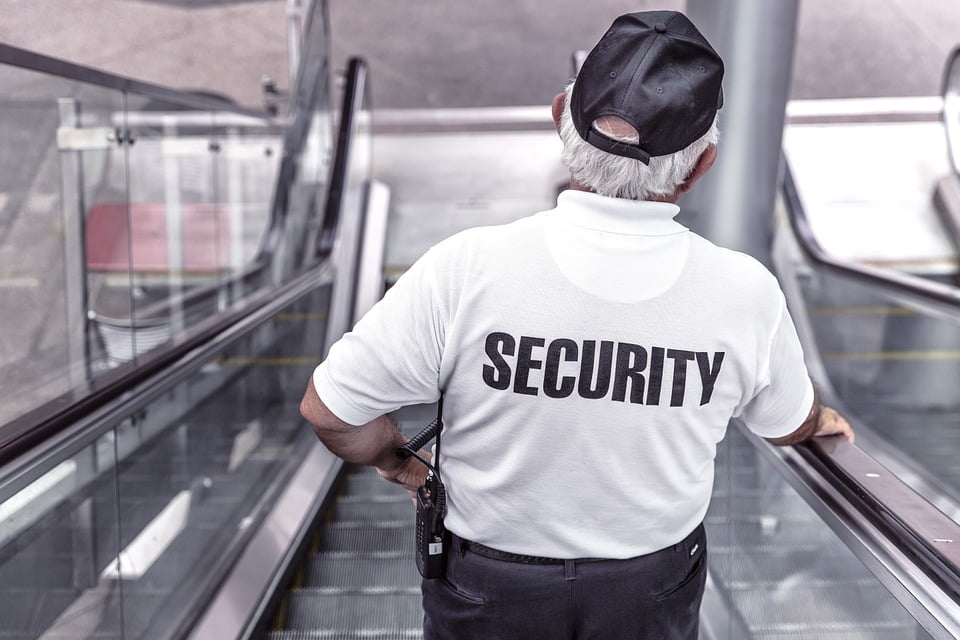
SAFETY & SECURITY >
KEEPING SAFE WHILE TRAVELING OR WORKING FROM HOME
FDN Life was recently made aware of various incidents where FDNs, especially digital nomads, were the victims of crime and physical assaults. We urge all FDNs to always be aware of their safety.
A WAY OF LIFE
Though the FDN work-lifestyle is often presented as fun and games, there is a darker side to either working from home or traveling as a location independent. Many FDNs report they have never experienced any crime, while others say they have been in situations they wish had never happened.
Our greatest danger may be ourselves and the comfort zone we sometimes live in. When working from home, we might get so comfortable that we forget to keep the doors locked or change our jogging routines. When abroad, we trust anyone and go on a tour with them, not realizing we might need to be more careful about placing our life in the hands of another.
Today, in the 21st century, personal safety is of paramount importance, especially to young men and woman traveling regularly in unsafe or dangerous countries. Young location independents, especially women, have been targets of organized crime, abducted, molested, sexually abused, physically abused, and/or raped.
TERRORISM
Crime is alive and well in the larger cities of the world. Terrorist attacks can happen at any time in any place. Just think about the recent slaughter in New Zealand. Was it ever expected? Did anyone ever think that the Kiwis would hit the news headlines the way they did? Was 9/11 expected? And what about the ongoing protests in the French capital?
What if you are hit by a stray bullet, a brick or a water cannon on your way to work or just while touring a major city?
Tip: Be sure to check the local news before traveling. Avoid areas of conflict, unless, of course, you are a current affairs journalist and want to be on the fringes of conflict!
NATURE
If traveling is your way of life, nature poses a danger as well. In most of Europe and North America, you may find yourself in a heavy rain or snow storm on your way to or back from your destination. Keep an eye on weather conditions, especially in a foreign country where you are not familiar with the weather. A sudden change in weather can change a safe hiking trail into a disaster. Be prepared and pack for sudden weather changes if going on a hike in a remote area.
PEOPLE
In theory, the very people around you pose a danger to you. The danger is not always because of what they are, but rather because of what they are doing. Most of us have four basic areas that concern our personal safety: home; the workplace, where we spent the major part of our daily lives; and then the way we get there, either on foot or by transport. Stay aware of who you are surrounded by. Even if traveling in a group, stay aware of individuals who might not have your best interests at heart or want to take advantage of you. Trust your instinct.
PERSONAL SAFETY @ HOME
“Home” can be where we stay, where a traveler may overnight, our holiday accommodation, or even the hut a hiker uses to overnight. The mere fact that home may be a security complex, condo or a hotel with plenty of security is no guarantee of safety. A recent event saw a digital nomad physically assaulted and left for dead while staying at a resort with a good reputation. Be aware of your surroundings and avoid “quickly” popping out alone at night.
SAFETY WHILE WALKING
Walking forms part of our daily lives – for most of us, anyway. Maybe you don’t like walking at all, which is why you don’t pay attention to your surroundings. Maybe you jog every morning, who knows? But the most important thing when walking or jogging is to be on high alert.
HOUSE AND HOME
Let’s have a look at some safety tips for the residence of your choice. Do you have a name and contact number on your postbox at the entrance? Not bad, but if you are a woman staying alone, don’t offer that info. Rather stick with an emergency contact number only.
What is the first thing we do when arriving home? We unlock the front doors and – run for the toilet! Or are your arms filled with parcels, etc. and you try to find a place to offload? Are you forgetting the front door? Trust your instinct; the danger may be lurking closer than you think.
Electricity plays an integral part in our lives. Beware of sparks and acid smells when putting an appliance to work or just when switching the lights on. That applies to travel and holiday accommodation as well. Electricity has a bad habit of giving you the shock of your life!
The same goes for gas. Not as much of a danger in Africa or Asia, but in major European and North America cities, it’s a part of life. Trust your nose and make sure you don’t have gas leaks and that your gas is turned off when going to sleep. Gas fires can be devastating.
When overnighting, make sure you have a regular place for your keys. Never leave your keys in someone else’s possession. That excludes your hotel, where you leave your key at the reception! It’s NOT a good idea to have your home address on your bundle of keys (but keep in mind that your traveling destination may have that as a standard). On the other hand, a phone number may be helpful if you ever lose your keys. When you get that call, be sure to trust your instinct. The best way to collect your lost keys would be in a crowded place or to take a friend with you.
Do you have any emergency numbers at hand? Remember that 911 doesn’t work in all countries of the world!
Make sure the drapes are drawn when you’re going to bed and especially when you’re undressing. Hopefully, you have seen enough movies not to need reminding of this one!
Plan a safe route OUT of your house or room in case disaster strikes. If staying in a hotel or guest house, do make sure there’s a way out in an emergency. It is not always possible, but try to have an escape plan in mind. You may never need it, but rather be safe than sorry.
We have touched on the basics of home safety, and you will be able to add quite a few more. The hardest lessons are learned by experience; don’t become a victim in the very place you regard as comfortable and safe.

SAFETY WHEN DRIVING What are the most important rules when driving? We probably don’t have to remind you. We have heard it a hundred times or more. Don’t drink and drive, even if you are known to be able to hold your drinks. And yes, there is the other one as well, no speeding! Speed limits are there for a reason. Speed does kill, and it doesn’t only happen to other people!
PARKING
When parking your car, take note of your surroundings. Avoid poorly lit areas and scrubs. And the golden rule? Don’t leave any visible valuables in your car. Rather take the time to put them in the trunk. Take extra care with hand weapons. In some countries, it’s against the law to leave them in your car. Ensure that you lock your car and have the key ready when returning. And yes, check that back seat, even if your car was locked.
CELL PHONES
One of the biggest distractions today causing more accidents than heart attacks do? A little electronic device called a cell phone, which is also our personal stereo system. “So what?” you may be asking. “I’m waiting for an important call.”
People are at their most vulnerable when talking on a phone. Unfortunately, it’s a way of life we’ve become addicted to. Try not to walk and talk. Try to get to a place where you can observe your surroundings when talking, even between two parked cars, if need be. Just mind the guy pulling out.
THE STREET
Take special care where you walk. Make a mental note to avoid open manholes or people working on the streets. Mind overhead scaffolding. Most contractors have safe walkways under scaffolding. Never take shortcuts close to construction work. Hazards can also be found overhead. And yes, mind the hanging power lines!
Pay attention to traffic lights and follow traffic rules. Don’t zigzag through the traffic when in a hurry. You may just end up being a mascot on a motor vehicle. Be careful not to get boxed in when there’s congestion at a traffic light. If you notice someone trying to box you in, try to get into a shop, and if it’s getting serious, shout blue murder and draw attention to yourself. Remember, if cornered: rather lose your property than your life. Memorize at least a few numbers to call when you lose everything.
When crossing a road, pay attention to turning vehicles and waiting cars; make eye contact and be sure the drivers notice you while you are crossing a road.
Keep control of your belongings. When traveling, keep your phone and purse separate from your luggage. Keep a card or money ready when using public transport. Avoid opening a wallet in public. If you ever get mugged, try to stay calm and take a mental note of your attacker’s appearance.
TRAVELING BY CAR
When traveling, make sure that you are familiar with the route. Oh, you got a GPS? Just a reminder, it will take you on your intended route and warn you about traffic jams, maybe speed traps, etc. as well, but the fastest route may not be the safest.
It’s a good idea to have someone close to you know what your destination is, especially when planning a long-distance trip. Be careful not to share too much of your traveling plans on Facebook or Twitter. Criminals have access as well!
And it’s always better to drive with your car locked. You don’t want an uninvited passenger demanding a lift.
Don’t ever mark your keys with your home address, car registration or even your name. At most, maybe, a phone number, but be very careful when you get that call!
Of course, there are many other precautions, but above are some of the important ones. Take care and drive safely.
SAFETY AT WORK
Most people, even FDNs, spend the greater part of their lives sleeping or being at work. Most large companies are forced by law to have safety rules and emergency plans in place. Be attentive to these regulations and emergency procedures at all times. Do you know where the emergency assembly points are and how to get there?
OVERTIME
When working overtime, make sure that your family at home or someone close to you knows that you’ll be returning late.
Be careful of washrooms and storerooms at night. It’s not necessarily a stalker who may pose a danger; an injury could leave you unattended until the following day.
Don’t embarrass yourself in front of security cameras. Don’t become an instant Instagram or Facebook hit for the wrong reasons!
FELLOW EMPLOYEES
Make sure that you know most, if not all, of your fellow employees. No need for personal contact with everyone – it is natural that there are some people you just don’t want to know. But do at least familiarize yourself with the faces around you. Report suspicious persons you notice walking around. Always question an unknown person’s presence on your floor. Familiarize yourself with the “noise” around you. Any change in the tempo may indicate that something is going wrong or is about to happen.
INTOXICATION
You know that if you drink and drive, you may end up in jail. Don’t arrive intoxicated at work; you may just lose your job, and you might not even remember it. The same goes for drugs. Are you in trouble? Or do you know someone who has a problem? Most employers have employee assistance programs in place. Do approach HR if you need help.
PROTECTION
Wear protective equipment when needed, even if you are a temp or a freelancer. Things like safety boots, hard hats, and gloves may not be comfortable at all but are paramount for your safety. Nobody wants to lose a limb or a life when at work.
This obviously goes for your outdoor activities, such as hiking and mountain climbing, as well. Take care of the equipment you need for the trip and ensure that it is in good working order.
And lastly, don’t stray into unauthorized areas!
IN CLOSING
When traveling abroad, we are probably in more personal danger than at home. When we are on holiday or in another country, we are entering unknown territory. Be prepared for adverse weather and sudden political upheaval.
You may be applying most safety rules already, but that in itself poses a danger. Your current safety comfort zone may be the biggest danger to yourself! You are so used to what you do that you lose awareness. Think about it, be safe, and be careful.
KEEPING SAFE WHILE TRAVELING OR WORKING FROM HOME
FDN LIFE >
AUTHOR
Ben Masterson
SUBSCRIBE TO
FDN LIFE NEWSLETTER!
Join our mailing list to receive the latest news, information, and special offers.

